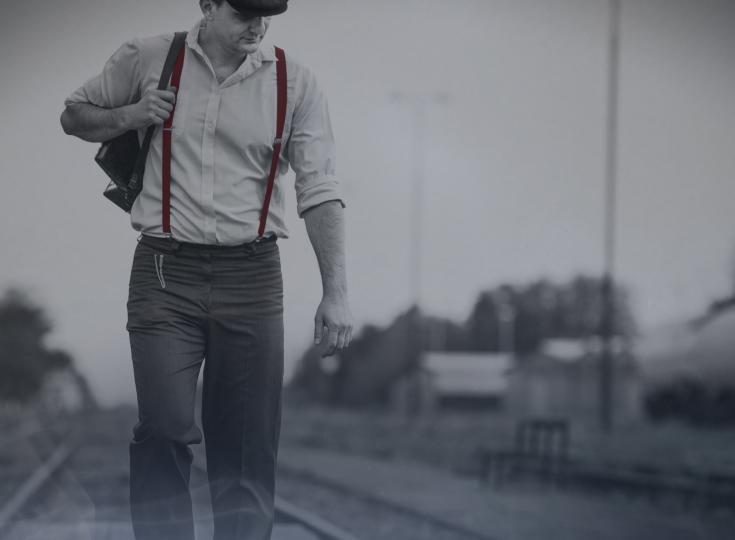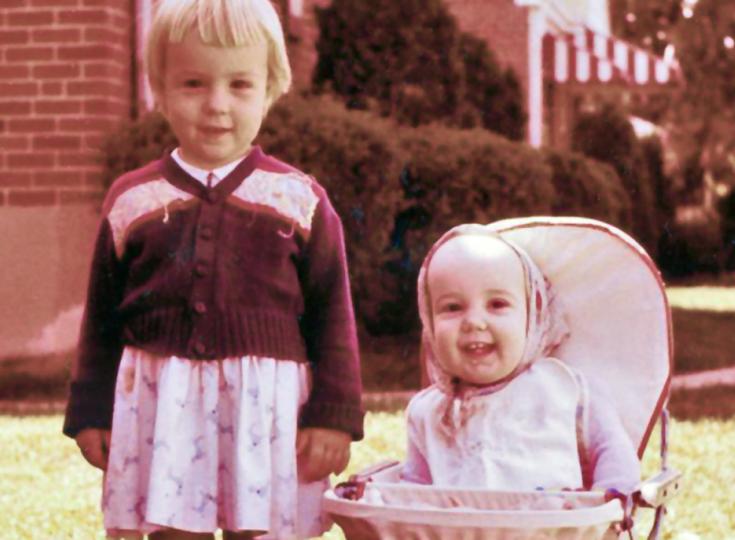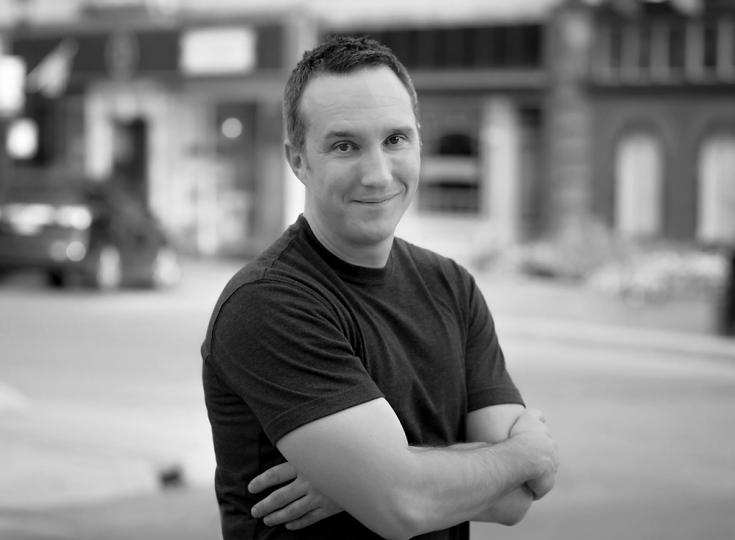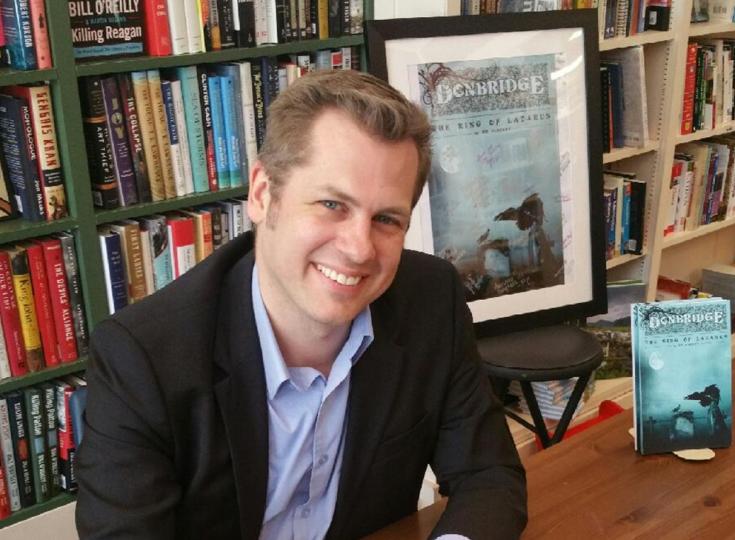Russell Heath - A Mystery set in Alaska
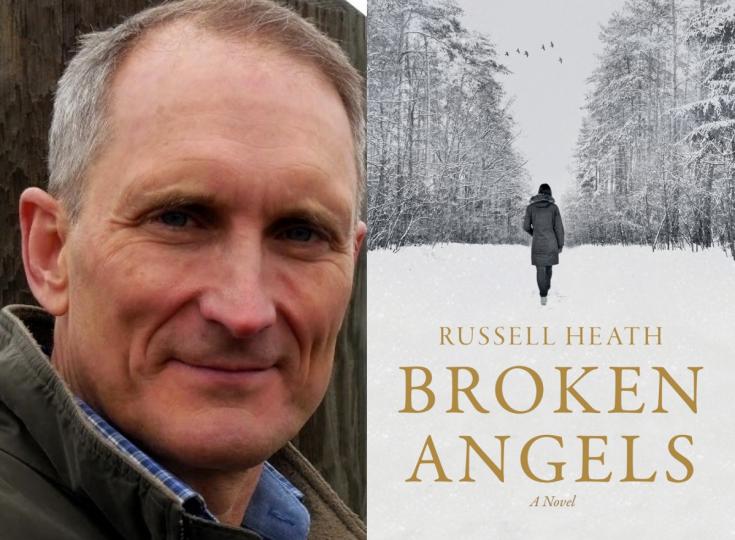
In his teens, Russell Heath hitchhiked to Alaska and lived in a cabin on the banks of the Tanana River; in his twenties, he lived in Italy and then traveled overland across the Sahara, through the jungles and over the savannas of Africa and into southern Asia; in his thirties, he sailed alone around the world in a 25 foot wooden boat; in his forties, he wrote novels; and in his fifties he bicycled the spine of the Rockies from Alaska to Mexico. He’s worked on the Alaska Pipeline, as an environmental lobbyist in the Alaska Legislature, and run a storied environmental organization fighting to protect Alaska’s coastal rainforests. Several years ago, he moved to New York City to dig deep into leadership development and coaching. As our Author of the Day, Heath tells us all about his novel: Broken Angels.
Please give us a short introduction to what Broken Angels: A Novel is about
Kris Gabriel, an Alaska Native, 24, reluctantly returns to Alaska at the request of a mother she hasn’t seen in nine years. She finds her murdered; shot in the face by the double-barreled blast of a shotgun. Driven by anger and guilt and only knowing how to fight—she sets out to avenge her mother’s death. Relentlessly, she tracks a trail of pain, of lost love, of lives ripped apart by the frozen north’s unyielding law of survival, never suspecting that she has far more at stake than finding her mother’s killer.
What had you decide to write a novel?
Hubris. I was kayaking with a friend around Baranof Island in SE Alaska—a 3-week trip. She’d just finished a mystery by an Alaska author and I asked her if it was any good. She said, yes—so I read it. It was beyond dreadful. I complained to my friend—
“Yeah, I know,” she said. “But I didn’t want to influence your opinion.”
“I want my opinion influenced. I wasted hours of my life reading this.”
That night we were weathered in by a blow. I was snugged up in my sleeping bag still pissed that a book could be so bad. And then I stepped off the edge. I said to myself that I could do better.
How did the idea for the novel originate?
That was a problem. I hadn’t a clue how to start. I so hapless, it was almost comical. Thousands of books written every year and I didn’t what to do after picking up a pencil.
Then, one random day, I remembered a novel that was a scene by scene rip-off of Shakespeare’s Lear. A Thousand Acres by Jane Smiley. You’d think she’d be hauled off for plagiarism, but no—she’d won the Pulitzer. I cast about for a play where the author had been dead long enough he wouldn’t be coming after me for stealing his stuff.
Since I was writing a mystery—the play to use was obvious. The first mystery in western literature was Oedipus Rex by Sophocles. Fortunately, Sophocles has been dead for 2,500 years and I figured he wouldn’t much care that I was taking his best stuff. That was my start.
Why murder mystery? What drew you to this genre?
I have no love for mysteries—generally because they are so contrived: a bunch of unlikely events strung together to produce an outrageously improbable outcome that has next to zero psychological plausibility: she killed him because of a hang-nail? I chose a mystery because I was on automatic: the book that kicked it all off was a mystery, so I was going to write a mystery.
So—is Broken Angels a bunch of unlikely events strung together to produce an outrageously improbable outcome that has next to zero psychological plausibility?
No. This story is the story that I wanted to read. It’s psychologically real, the characters are driven by who they are; they make bad decisions that lead to horrific outcomes—but each step of the way you get why they are doing what they are doing. The story is rich and complex and, at times, emotionally challenging for the reader. And it rips—you will not be able to put this book down.
Tell us more about Kris Gabriel. What makes her tick?
At the outset, it looks as if Kris is driven by vengeance to find her mother’s killer. Maybe, but maybe also by guilt. She’d abandoned her mother when she was 15 and when she left, her mother’s life fell apart. Then she’s Alaska Native and she, like her mother, was cast aside by the white world. She grew up on the streets Fairbanks with an alcoholic mother, no father, and even now, she is living a meager existence on the bleak edges of society. She’s crusted by anger and resentment and all she knows how to do is fight. So that’s what she does—fight. But then, as she uncovers her past, we see that what she’s truly searching for is love, for connection, for her humanity. Because Broken Angels is taken from a Greek tragedy—you know it’s not going to turn out well.
In your teens, you hitchhiked to Alaska and lived in a cabin on the banks of the Tanana River. How has this influenced your writing?
Alaska is not a normal place; it is not like some random suburb where stubbing your toe on a busted sidewalk is the highest adventure on offer. Alaska roughs you up and scours your soul; it lifts you and rings you like a bell; it punishes you in its endless nights, its searing cold, and its vastness so threateningly silent you cower in awe.
Most novels set in Alaska caricature the state—50 below and your spit freezing before it hits the snow. Yeah, but what do you think that does to a person’s psyche? What do you think a landscape so stunning, so unrelenting, so overwhelming does to a person? In Broken Angels, Alaska it isn’t a setting, it’s is an enveloping presence that stalks each character—and no one escapes.
What have been readers’ reactions to Broken Angels?
Alaskans get the story and the Alaska portrayed in it. Some non-Alaskans are annoyed by Alaska’s presence, as if it were an unnecessary character. Kind of like Woody Allen in his later movies: what’s he doing there?
People who love the way mysteries tie everything into a tight tidy bundle—order is brought to the universe—are often frustrated by the ending. Those who revel in the psychological and the emotional are moved by the ending.
For the tight tidy bundle folks—a sequel is coming.
Besides writing, what other secret skills do you have?
I was still a callow teenager when I decided my life’s trajectory was going to be erratic: No career, family, house in the ‘berbs. Since then I have been twice around the world—once in a sailboat, written novels, crusaded for Alaska’s rainforests, smuggled gems, climbed mountains, lived in Florence—whatever. My secret skills are a willingness to fly high and the foolishness—after a crash—to give it another go.
Have you always wanted to be a writer?
I have always wanted to be a writer in the same way I’ve always wanted to be president, or Spiderman, or a supermodel. A daydream to lift me out of the daily grind.
What are you working on right now?
I’m readying my second novel, Rinn’s Crossing, for publication—it’s due out at the end of September, 2019. And I’m working on a sequel to Broken Angels. And I’ve got a TV writer in LA intent on turning Broken Angels into the next Breaking Bad (no one I know is holding their breath).
Where can our readers discover more of your work or get in touch with you?
I super enjoy hearing what folks have to say about my novels even if to excoriate them—shoot me an email, give me a ring. You can find me at russellheath.net.
